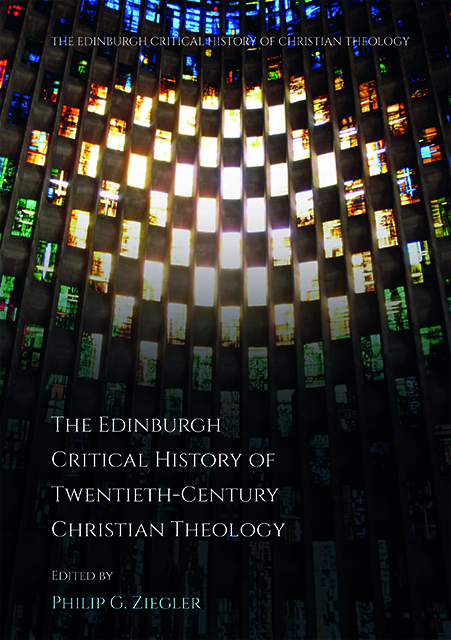Book contents
- Frontmatter
- List of Contents
- Notes on Contributors
- Editor's Introduction
- 1 Modern Theology in a Scientific, Historical Age
- 2 Tradition and Innovation
- 3 Scripture and Criticism
- 4 Reason, Method, System
- 5 Catholicism and Ecumenism
- 6 Fundamentalism and Evangelicalism
- 7 Synagogue, Sho’ah and State
- 8 Religion(s)
- 9 God
- 10 Spirit
- 11 Christ
- 12 Liberation and Freedom
- 13 The Secular – The Political: Augustine and Political Augustinianism in Twentieth-Century Political Theology
- 14 Globalisation after Empires: World Christianity and the Theological De-centring of Europe
- 15 War and Peace
- 16 Race and Black Theology
- 17 Sex and Gender
- 18 Hope
- Index
2 - Tradition and Innovation
Published online by Cambridge University Press: 14 July 2023
- Frontmatter
- List of Contents
- Notes on Contributors
- Editor's Introduction
- 1 Modern Theology in a Scientific, Historical Age
- 2 Tradition and Innovation
- 3 Scripture and Criticism
- 4 Reason, Method, System
- 5 Catholicism and Ecumenism
- 6 Fundamentalism and Evangelicalism
- 7 Synagogue, Sho’ah and State
- 8 Religion(s)
- 9 God
- 10 Spirit
- 11 Christ
- 12 Liberation and Freedom
- 13 The Secular – The Political: Augustine and Political Augustinianism in Twentieth-Century Political Theology
- 14 Globalisation after Empires: World Christianity and the Theological De-centring of Europe
- 15 War and Peace
- 16 Race and Black Theology
- 17 Sex and Gender
- 18 Hope
- Index
Summary
During the twentieth century, theological tradition was viewed in different ways. Some regarded it as a fixed and coherent set of doctrines and practices traceable back to a point in past time. Earlier in the century, doctrines might have been written down in neo-scholastic manuals, and the compilers of these manuals probably regarded them as containing unchanging, true theology, even if their critics did not. Others saw tradition as a developing body of doctrines and practices that are rooted in the past but are contin-ually received and interpreted in the present. Closely linked with this was the notion that tradition is lived, through its connections with ecclesiology, liturgy, ethics and politics. According to the first understanding, tradition and innovation are opposed, whereas the second understanding takes tradition and innovation to be at least compatible, and at the most, identical. Many of the theological debates of the twentieth century were precipitated and perpetuated by competing conceptions of the relation between tradition and innovation.
In many respects, the stage for twentieth-century theology was set in the nineteenth century. When applied to Scripture, historical-critical method had undermined the belief that what was written on the page was a literally true description of past events, but in so doing had opened new space for constructive systematic theology. Developmental models of history – whether those of Darwin, Mill or Marx – had presented events as caused by different kinds of material factor, but readings of history as linear could be reframed and revised in a Christian theological context. Industrialisation had intensified previous social inequalities, opening a large new arena for social and political theology. Intellectual hostility to Christian claims would encourage theologians to discover a more confident and independent voice, rather than relying on the support of other intellectual disciplines. Against this backdrop given by the preceding century, important new conceptions and rereadings of tradition emerged, accompanied by innovative engagements with tradition. This chapter surveys these new conceptions, rereadings and engagements in three sections. Tradition has been a prominent concept in Orthodox and Roman Catholic theology, and the first section examines some understandings of it by key figures. A broad range of other theologians have critically engaged with received readings of doctrinal traditions, and these are considered in section two.
- Type
- Chapter
- Information
- Publisher: Edinburgh University PressPrint publication year: 2022

